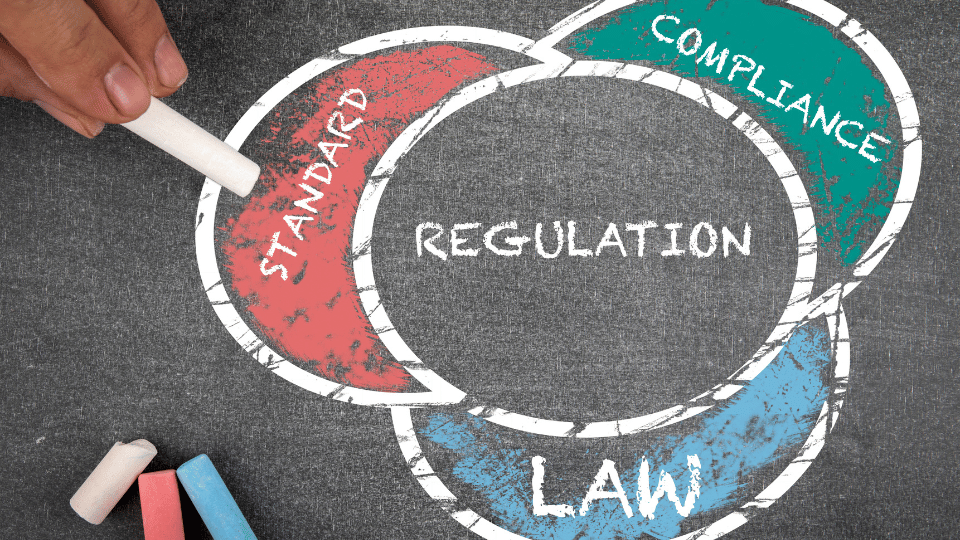Export Control Regulations (EAR) and Defense Recruitment

Imagine a defense contractor in the U.S. urgently hiring engineers for a classified aerospace project. The recruitment team moves quickly to fill the role — but overlooks the fact that the chosen candidate’s citizenship status conflicts with Export Administration Regulations (EAR) requirements. The result? The company faces potential fines, project delays, and a serious hit to its reputation.
In the defense and aerospace industries, compliance is more than a legal checkbox — it’s a critical safeguard for national security. Among the most important rules recruiters must navigate are Export Administration Regulations (EAR). These regulations don’t just affect how sensitive technology is exported; they also determine who can work on certain projects.
In this guide, we’ll break down what EAR means for recruiters, how it differs from ITAR (International Traffic in Arms Regulations), and how defense hiring teams can ensure they remain compliant.
Understanding the Export Administration Regulations (EAR)
The Export Administration Regulations (EAR) are managed by the U.S. Department of Commerce – Bureau of Industry and Security (BIS). They govern the export of dual-use items — goods, software, and technologies that have both commercial and military applications.
Unlike ITAR, which focuses on strictly military-related items, EAR covers a broader range of technologies and applies to organizations in aerospace, electronics, telecommunications, and more.
Key points recruiters need to know:
EAR applies to controlled technologies — even when they are shared within the U.S. with a non-U.S. person.
Any "deemed export" (providing controlled technology to a foreign national inside the U.S.) is regulated under EAR.
Organizations impacted include defense contractors, aerospace manufacturers, research institutions, and certain high-tech firms.
For recruiters, this means candidate eligibility isn’t just about skills — it’s also about legal clearance to access controlled technologies.
Learn more: U.S. Government Export Compliance Guide
Why EAR Compliance Matters in Defense Recruitment
Hiring the wrong candidate for an EAR-restricted role can have serious consequences:
Legal & Financial Penalties: Fines can reach hundreds of thousands of dollars per violation.
Loss of Contracts: Government or defense contracts can be terminated.
Criminal Charges: Willful violations can lead to imprisonment.
Reputational Damage: Loss of trust with clients, partners, and government agencies.
Impact on candidate eligibility:
Citizenship & Residency: Many EAR-restricted positions require U.S. citizenship, permanent residency, or specific visa classifications.
Security Clearances: Roles involving highly sensitive technology often require an active clearance.
Nationality Restrictions: Even dual citizenship in certain countries may affect eligibility.
For HR teams and recruiters, understanding these nuances is essential to prevent compliance missteps.
EAR vs. ITAR: Key Differences for Recruiters
While EAR and ITAR both regulate sensitive technology and information, their scope and application differ.
Feature | EAR | ITAR |
|---|---|---|
Administered By | Department of Commerce (BIS) | Department of State (DDTC) |
Covers | Dual-use items (commercial & military) | Defense articles, technical data, and defense services |
Examples | Satellite components, encryption software, advanced manufacturing tech | Firearms, military aircraft parts, classified defense blueprints |
Applicable Industries | Aerospace, electronics, telecommunications, high-tech manufacturing | Defense manufacturing, weapons development |
Candidate Restrictions | Based on technology access under EAR | Based on defense-related technical data access |
For recruiters, the key takeaway is that EAR covers a broader set of industries, making it more likely to affect hiring in both defense and high-tech sectors.
Best Practices for Recruiting Under EAR
Recruiting in an EAR-regulated environment requires a compliance-first approach. Here are best practices:
Pre-Screen Candidates Early
Include EAR eligibility questions in initial screening.
Confirm citizenship or residency status before advancing candidates for sensitive roles.
Collaborate with Compliance Officers
Partner closely with internal compliance teams to clarify EAR applicability for each role.
Review Navigating Security Clearances for Defense Industry Recruitment for additional clearance considerations.
Maintain Accurate Documentation
Keep records of candidate eligibility checks.
Document the compliance review process for audits.
Educate Your Recruitment Team
Provide training on export control basics.
Update recruiters on changes to EAR rules and licensing requirements.
How a Defense Recruitment Agency Can Help
For many companies, navigating EAR compliance in recruitment can be complex and time-consuming. This is where a specialized staffing partner can make a significant difference.
Compliance Expertise: A defense-focused recruitment agency understands the nuances of export control laws.
Faster Access to Qualified Talent: Agencies maintain networks of pre-screened, cleared candidates who meet EAR eligibility.
Reduced Risk: Partnering with experts helps avoid costly compliance mistakes.
Learn more about the business case for using a specialized staffing partner in The ROI of Partnering with an Aviation Staffing Firm.
Conclusion
The Export Administration Regulations (EAR) are a critical consideration in defense and aerospace recruitment. These rules determine not just what technologies can be shared, but who is legally permitted to work with them.
By pre-screening candidates, working closely with compliance officers, and leveraging specialized staffing partners, organizations can hire with confidence while staying on the right side of export control laws.
Need help sourcing EAR-compliant defense talent?
Contact us today to ensure your recruitment process meets all export control requirements.
